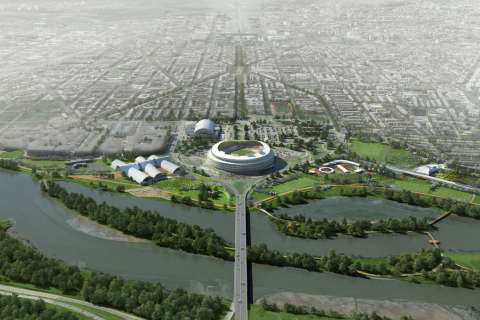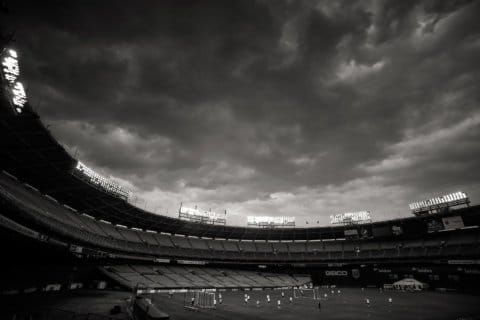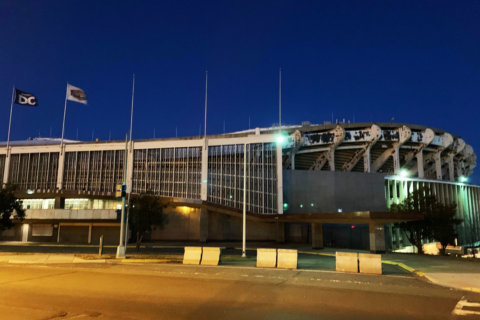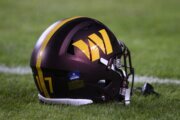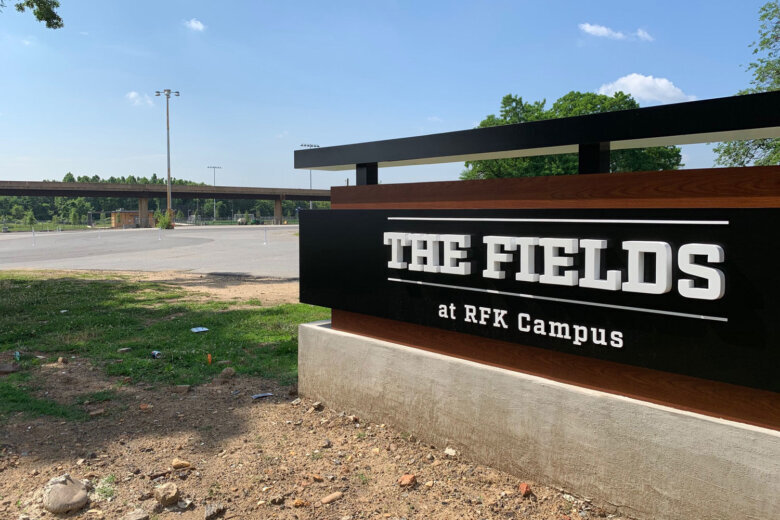
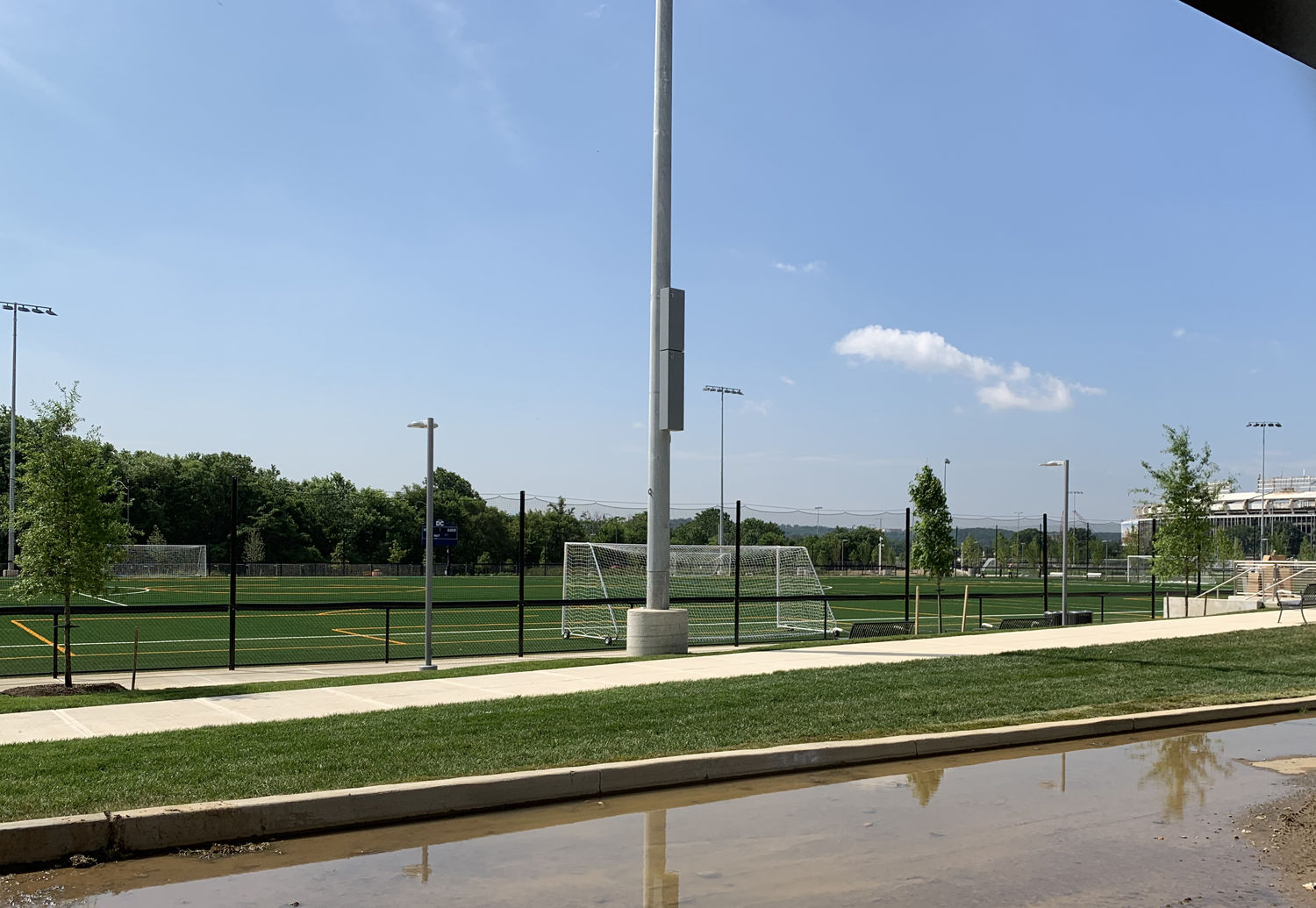
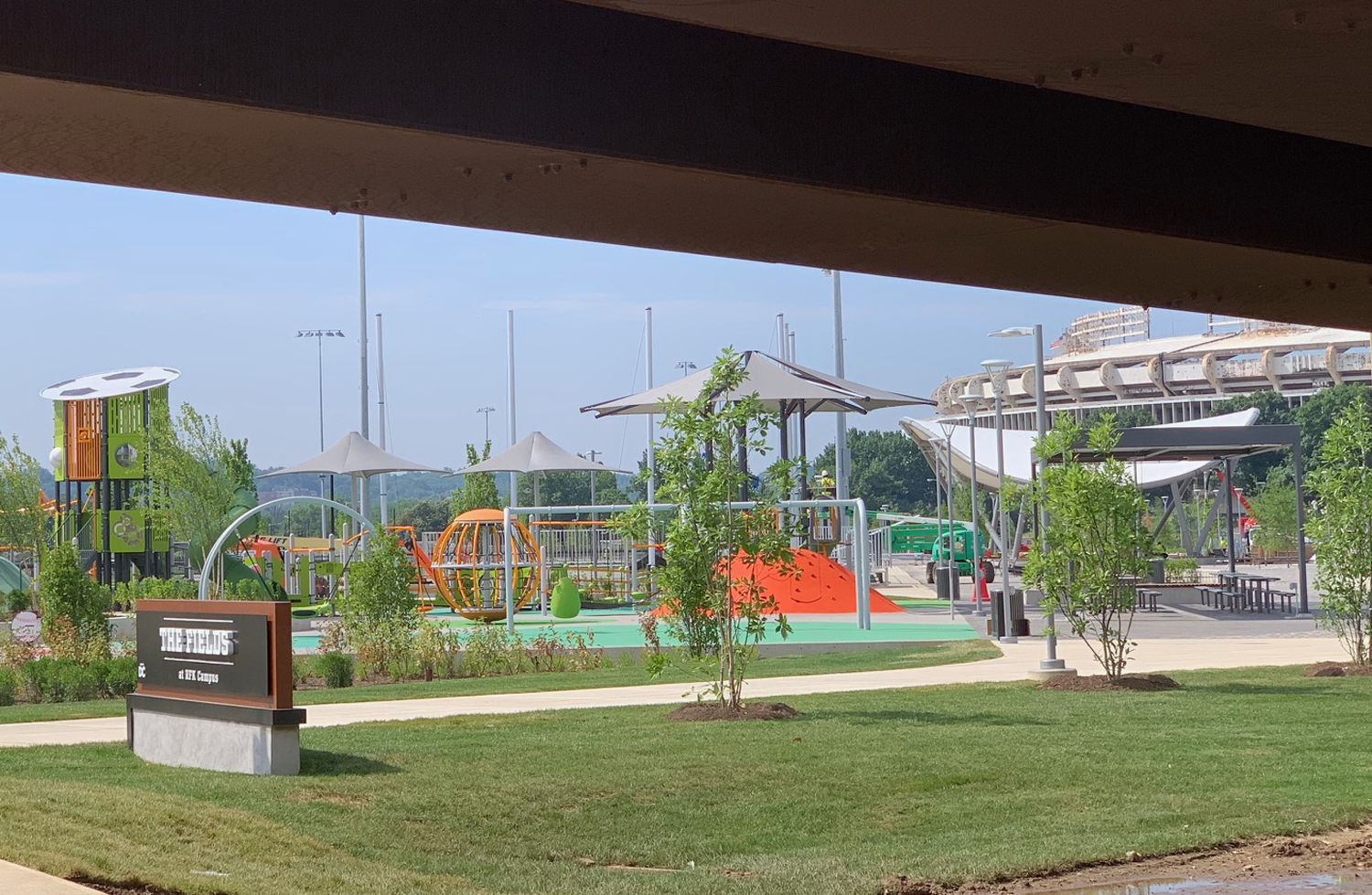

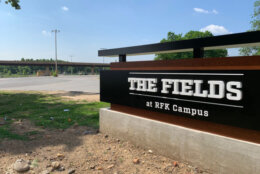
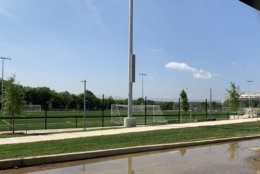
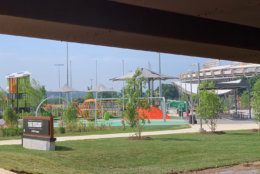
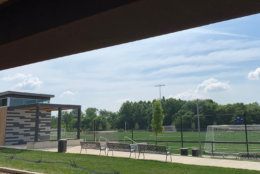
There will be a celebration along the Anacostia River Saturday morning as the ribbon is cut on The Fields at RFK Campus, the first in a five-part redevelopment plan for the 190-acre plot that once housed MLB, the NFL and MLS.
But the other four parts of the plan remain largely on hold, as local lawmakers and Events DC wait for the results of an attempt to secure the long-term future of the site.
The Fields at RFK comprise three multipurpose fields for soccer, baseball, lacrosse and more stretched over 27 acres in what used to be RFK Stadium’s Lot 7, on the north side of the existing structure, in the shadow of the Metro tracks.
The space is complete with lights, a scoreboard, bleachers, a pavilion, a playground, walking paths, and even a mobile phone charging station. All will be operational for Saturday’s ribbon-cutting at 10:30 a.m., featuring Mayor Muriel Bowser, Councilmembers from Wards 6 and 7 Charles Allen and Vincent Gray, respectively, and D.C. United stars Wayne Rooney and Bill Hamid.
The fields went a bit more than $5 million over budget, primarily due to lead remediation on site, raising the price tag from $30 million to more than $35 million. But overall, the project stayed largely on time, pushing just once from its original hopeful completion date of fall 2018.
“Considering it’s a property we don’t own, that we lease from the federal government, that we need park service approval on all the things we have to do, and EPA, and local law, I actually think it’s pretty amazing that we’re able to get this thing done in a little less than three years,” Max Brown, Chairman of the board of directors of Events DC, which is overseeing the RFK redevelopment project.
Before moving forward with the larger elements of the nearly $500 million plan — particularly the sports and recreation complex and market hall — Events DC is waiting for clarity on the long-term future of the land. The 190-acre site is owned by the National Park Service, and the city’s current lease expires in 2038.
After no small measure of discussion and lobbying for a more permanent solution, D.C. Congressional Delegate Eleanor Holmes Norton drafted legislation to allow the city to purchase the land at fair value, based on a professional appraisal.
Mayor Bowser’s office released a statement in support of the bill back in late March, saying that “we cannot afford to let any land go to waste, and a national monument dedicated to asphalt benefits no one.” The bill had no reference to the shadow persistently cast over any discussion of the future of this project, the potential return of an NFL stadium to the site.
“What we saw happen at the end of last year was a very behind-the-scenes effort by some to try to get this land for a stadium for the NFL team and really try to wire it in a way that broke a lot of trust with people, because it was really behind the scenes,” said Councilmember Allen. “I think that people have abandoned that approach.”
That still leaves the more immediate plans unaddressed, though. When Events DC unveiled their five-part short term redevelopment plan, they intentionally left the long-term anchor tenant option open to multiple iterations. While he’s happy to see the fields completed the better part of a decade after they were first discussed, Allen would like to see Events DC move forward as quickly as possible with the other components.
“I’m very glad that Events DC took this on, and think is delivering a really quality project,” he said. “I also look at Events DC which seems to have hundreds of millions of dollars of surplus reserve just sitting there … It’s an initial step, but there’s so much more to be done, and I’d like to see us keep our foot on the gas.”
The potential for a land transfer complicates the process a bit, though. Currently, the land is zoned specifically for sports and recreation, a large reason why Events DC was charged with its future. If the District purchases it, though, city leaders could decide to repurpose some of it for residential or commercial use, something both Allen and the mayor’s office have discussed.
“As we’ve moved forward, the idea for this site has changed a little bit,” said Brown. “There’s been conversations with Congress about getting Congress to convey it back to the District, and the highest and best use isn’t necessarily just sports and entertainment.”
For now, that means the only component with a full green light is the foot bridges connecting the two sides of the Anacostia River through Kingman and Heritage Islands. Events DC is working with the park service, the Army Corps of Engineers and the community to move forward with those next. But the market hall and sports and recreation complex are on hold, as it the fundraising and construction aspect of the lasting RFK museum/memorial.
“Pieces of this would fit into that program, but until we get clarity on what’s going to happen with that conveyance, we sort of put pencils down until we can pick back up and align it with what is actually going to be the ownership structure, lease term structure of that parcel,” he said.
Ultimately, none of that answers the question of a potential NFL tenant on site. The behind-the-scenes efforts late last year did not include Events DC, which Brown said has had no discussions with the team. Everyone seems in agreement that owning the land is in the city’s best interest moving forward, though.
“The Mayor’s made clear, and we support the Mayor’s views, that this should be conveyed to the city,” said Brown. “Once that’s conveyed to the city, we would work with whoever owns the land at that point to figure out what role we would play and participate in an overall master development of that site.”
Allen is on the same page in regards to the land, but remains adamant about not using the site for an NFL stadium.
“I think that’s the right way to go,” he said of Norton’s bill. “If it in any way, though, tries to wire that land for a stadium, tries to set up some type of sweetheart deal, it’s not just me that’s going to oppose that. There’s a lot of people that will oppose that very strongly.”

